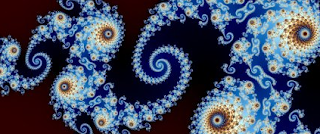Carol Dorf has been a long-time leader in math poetry projects. A now-retired secondary school math teacher from California, Carol is the poetry editor of the online journal Talking Writing -- an online journal that has included a variety of mathy poems. Recently, at the Joint Mathematics Meetings, Carol gave a presentation entitled "Poetry of Mathematical Definitions" -- the abstract for this talk begins with this provocative sentence:
Mathematical poetry begins when worlds we consider distinct collide.
Carol's poetry-editorship for Talking Writing has led to many math-related poems being published therein. Here is a link to those poems and a bit of other math-related content; the following list includes names of writers whose work has been included there: Robin Chapman, Marion Deutsche Cohen, Allison Hedge Coke, Mary Cresswell, Catherine Daly, Carol Dorf, Iris Jamahl Dunkle, Sarah Glaz, JoAnne Growney, Athena Kildegaard, Larry Lesser, Elizabeth Langosy , Marco Maisto, Alice Major, Katie Manning, Daniel May, David Morimoto, Giavanna Munafo, Karen Ohlson, Eveline Pye, Stephanie Strickland, Amy Uyematsu, Sue Brannan Walker, and Jean Wolff. Some of the poets have been featured more than once and to find all work by a particular author, SEARCH is recommended.
And here, from Talking Writing, is one of Carol Dorf's fascinating poems:
Lost Information by Carol Dorf
Visualize groups: there’s the babysitting co-op,
with slips of scrip the children color during
quarterly potlucks; and more than enough churches
each with study evenings, and fundraising committees;







